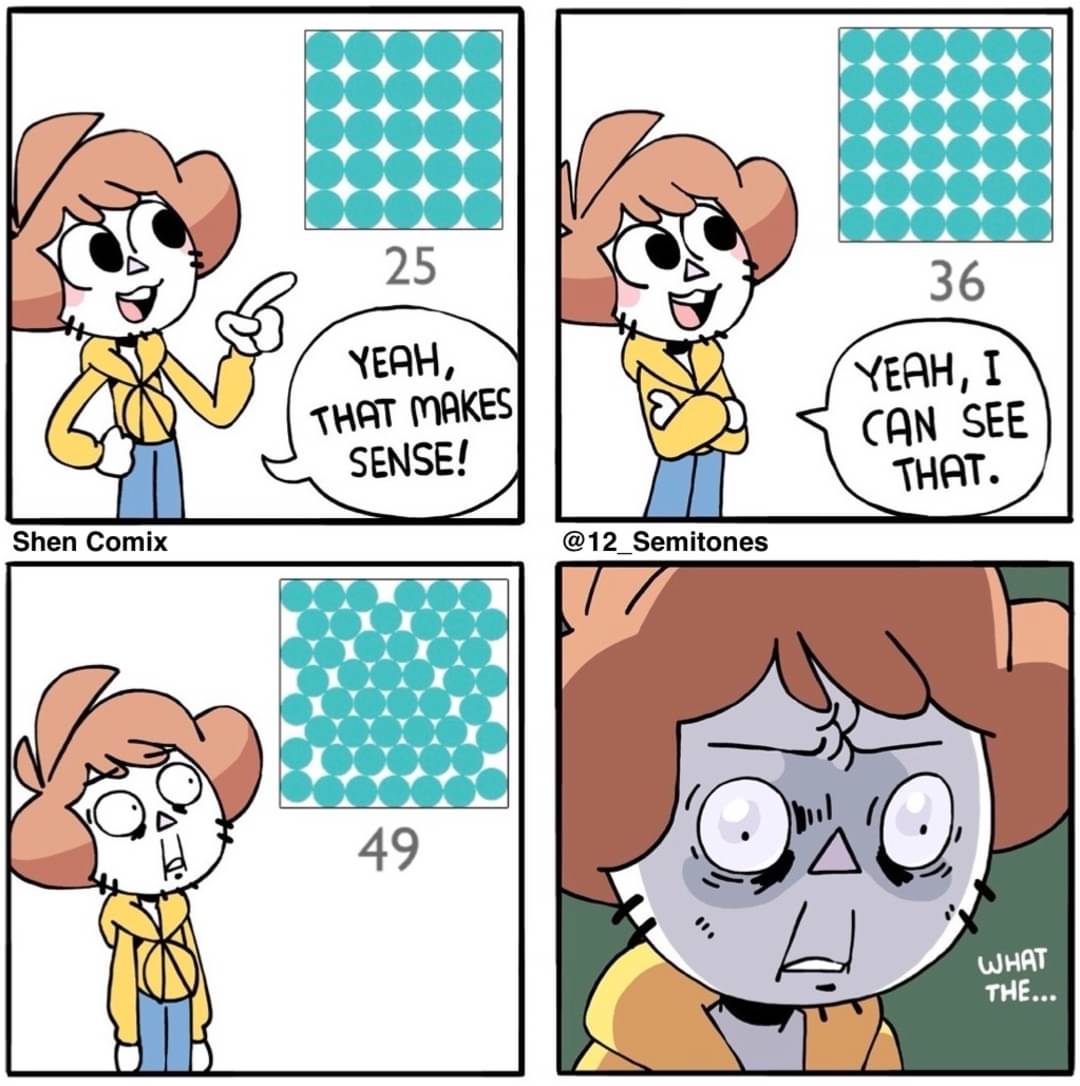this post was submitted on 26 Jun 2024
596 points (95.7% liked)
Science Memes
11047 readers
2881 users here now
Welcome to c/science_memes @ Mander.xyz!
A place for majestic STEMLORD peacocking, as well as memes about the realities of working in a lab.

Rules
- Don't throw mud. Behave like an intellectual and remember the human.
- Keep it rooted (on topic).
- No spam.
- Infographics welcome, get schooled.
This is a science community. We use the Dawkins definition of meme.
Research Committee
Other Mander Communities
Science and Research
Biology and Life Sciences
- [email protected]
- [email protected]
- [email protected]
- [email protected]
- [email protected]
- [email protected]
- [email protected]
- [email protected]
- [email protected]
- [email protected]
- [email protected]
- [email protected]
- [email protected]
- [email protected]
- [email protected]
- [email protected]
- [email protected]
- [email protected]
- [email protected]
- [email protected]
- [email protected]
- [email protected]
- [email protected]
- [email protected]
- !reptiles and [email protected]
Physical Sciences
- [email protected]
- [email protected]
- [email protected]
- [email protected]
- [email protected]
- [email protected]
- [email protected]
- [email protected]
- [email protected]
Humanities and Social Sciences
Practical and Applied Sciences
- !exercise-and [email protected]
- [email protected]
- !self [email protected]
- [email protected]
- [email protected]
- [email protected]
Memes
Miscellaneous
founded 2 years ago
MODERATORS
you are viewing a single comment's thread
view the rest of the comments
view the rest of the comments

Because it's a smaller area than 7x7.
If you consider the regular packing in an infinite plane, tri/hex packing is the most space efficient (least wasted space), so I'd assume larger packings would tend towards that. But in smaller packings, the efficiency loss from the extra size needed to offset the circles outweighs the efficiency gained by hex packing.
7x7 is the boundary where those efficiency tradeoffs switch.
Trying to think how tri/hex is more efficient than any regular tiling, say squares.
Want a hint? Think about a circle bound by an n-sided polygon. What happens to the space between the bounding polygon and the circle as n increases? And when n is infinite?
So of three possible regular tilings, which will be most and least efficient?
(Btw, strictly speaking, I shouldn't have said tri/hex before, as it's really just hex tiling.)
You could also use some fancy trig to calculate the efficiency %, but that's way too much work for me. :)
Thank you for this explanation!